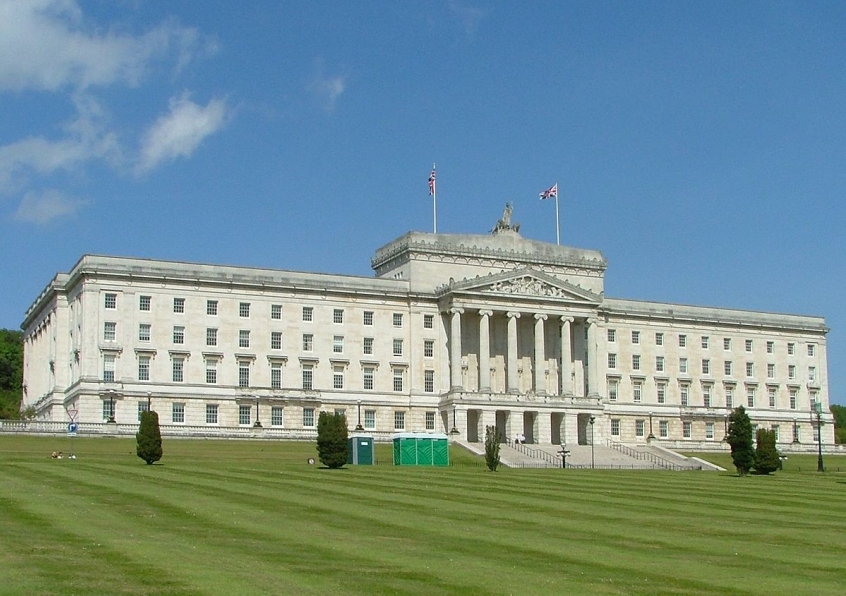
Pro-life campaigners are calling upon Westminster to respect devolution after coming under pressure to change Northern Ireland's abortion laws.
The call follows the release today of two reports by the Women and Equalities Committee (WEC) on abortion rights in Northern Ireland.
Abortion laws in Northern Ireland are far stricter than the rest of the UK, permitting terminations only where there is a permanent or serious risk to the mother's mental or physical wellbeing.
The Chair's report from the WEC does not support the introduction of abortion on demand that pro-choice campaigners have called for, but does recommend that Westminster change the law to allow abortions in cases where the baby has a "life limiting disability", which is currently illegal.
The second 'Alternative Report' by Tory MP Eddie Hughes says the UK Government should not undermine the devolution settlement and states that there is "no legal imperative" for the Northern Ireland Assembly to change its current abortion laws.
It also calls for greater support to be made available to women whose unborn babies are deemed to have a life-limiting disability.
"The Department [of Health for Northern Ireland] should review whether improvements to the maternal health strategy and the implementation of the regional [specialist mother and baby] centre can be implemented as soon as possible to improve the overall care for women with a diagnosis of a fatal foetal abnormality," he said.
Pro-choice campaigners have put pressure on Westminster to interfere in Northern Ireland's abortion laws as its Assembly remains suspended.
The Chair's report did not receive unanimous backing, receiving four votes while two members backed the Alternative Report.
Polling by Comres last October found that nearly two thirds (64 per cent) of people in Northern Ireland believe the issue of abortion should be decided by their own elected representatives. This figure rose to 70 per cent among 18- to 34-year-olds.
Right to Life UK and and CARE have both strongly criticised the Chair's report but welcomed the Alternative Report from Mr Hughes.
Clare McCarthy, spokesperson for Right To Life UK, said the Alternative Report "made some very helpful recommendations for improving support for families with children with life-limiting disabilities".
"Abortion in Northern Ireland remains a devolved issue and the Government in Westminster must be reminded that they have no mandate from the people of Northern Ireland to make any changes to their pro-life laws on abortion," she said.
CARE Chief Executive Nola Leach said it was "unacceptable" for the committee to make recommendations on Northern Ireland's abortion law when none of its members represent Northern Ireland constituencies.
She said that the "proper place" for a discussion on the laws surrounding unborn babies with life-limiting conditions was the Northern Ireland Assembly.
"The issue of abortion law in Northern Ireland should be decided by the people of Northern Ireland through their elected representatives and not by MPs sitting on a Westminster committee," she said.
She continued: "The repercussions of damaging the devolution settlement in the way recommended in the report would be felt across the UK."
She further warned that permitting the termination of babies with life-limiting conditions could pave the way for abortion on demand.
"The prospect of Westminster imposing change is highly alarming, as any legislation put forward could be amended to allow for widespread access to abortion on request for any reason in Northern Ireland," she said.
"We do not believe the hardest of hard cases should be utilised to allow for abortion on request."
By contrast, she said Mr Hughes' Alternative Report was to be "warmly welcomed" and made "some realistic and sensible proposals which would uphold devolution and engage with legitimate concerns some people have".
She added: "We must not forget that thanks to NI's life-affirming laws there are 100,000 people alive today across the Province."
Dawn McAvoy, co-founder of the Northern Ireland-based pro-life campaign group Both Lives Matter, echoed these concerns.
Instead of loosening abortion laws, she said Northern Ireland needed to work on improving maternal health services "to enable all pregnant woman to make good decisions for all lives involved".
"On the face of it, the recommended changes appear to be limited, but there is no guarantee that any resulting legislation would not be extended to provide abortion access, far beyond these recommendations," she said.
"It is important the public are aware that the proposals today are a small part of a wider campaign to radically alter abortion law across the UK to remove any protection for all the lives involved in a pregnancy.
"It is unacceptable to take advantage of the political complexities in Northern Ireland to meddle in abortion law when this matter has been the responsibility of Northern Ireland politicians since 1921."













